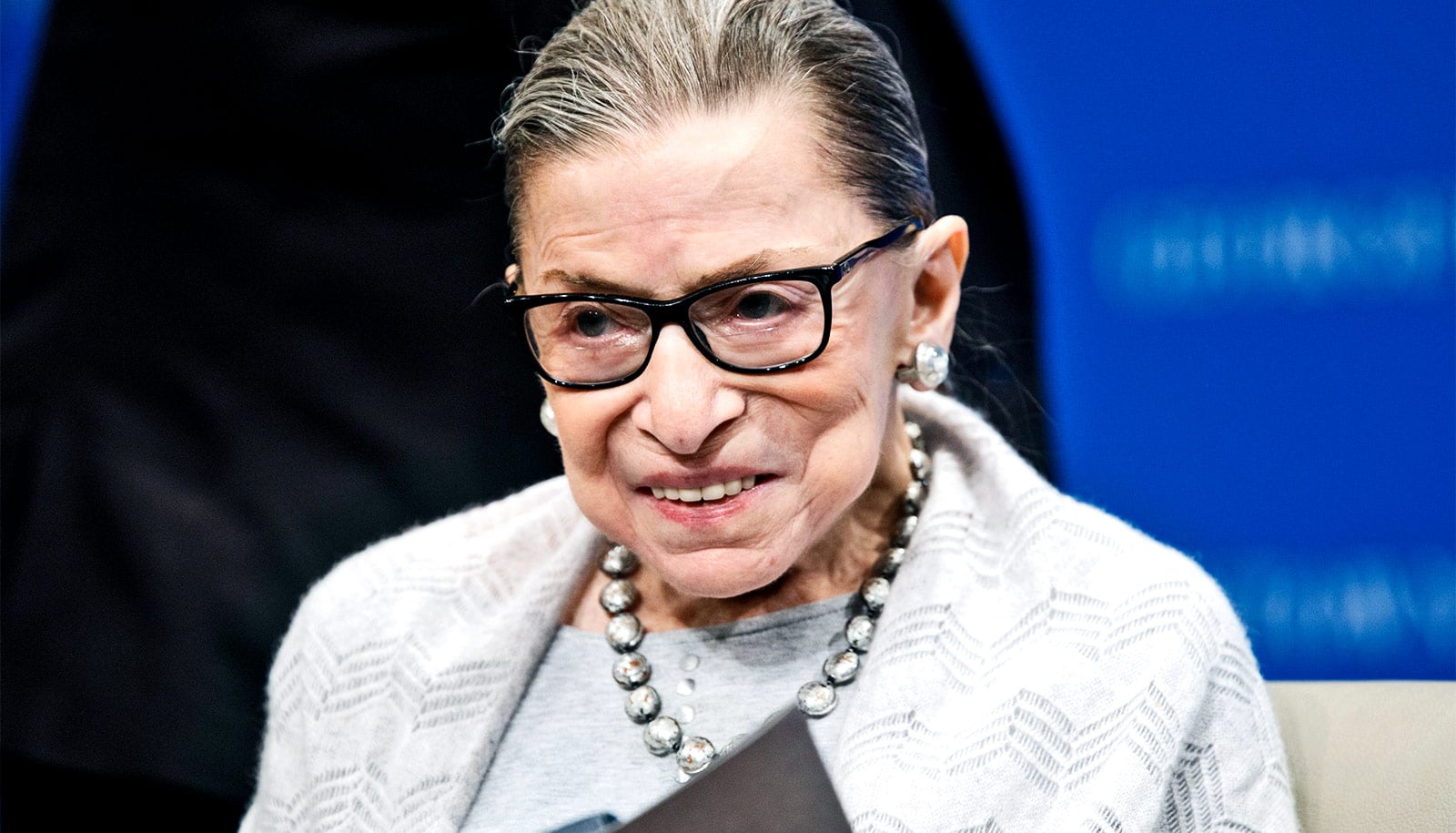Supreme Court Justice Ruth Bader Ginsburg has seen major changes in the law and the highest court in the land, but there are some things that she says haven’t changed all that much about serving on the Supreme Court.
“One way it hasn’t changed—the court is the most collegial place I’ve ever worked,” Ginsburg says.
“[E]very year in the now 26 years I’ve served on the court, we always agree more often than we disagree. So the 5-4 rate this last term was about 20%. But the unanimity rate, at least in the bottom line judgment, was 29%. So in that respect, the court hasn’t changed.”
On the other hand, people no longer confuse her with the only other woman on the court.
“One important way it has changed is the perception of the court by the audience, including the 10-minute line of children who stream in and out to observe for a brief time. When I was a new justice, people had become accustomed to there being a woman on the US Supreme Court. And that woman was Sandra Day O’Connor who was the lone woman for 12 years.
“So every now and then when I asked a question, the response would be, ‘Justice O’Connor.’ And then Sandra might say, ‘I’m Justice O’Connor, she’s Justice Ginsburg.’ We don’t look alike. We don’t talk alike. But they heard a woman’s voice—they knew there was a woman in the court. It’s not that way any longer, because I’ve been there so long I sit next to the chief. And to the left some seats down is Justice Sotomayor. And to the right Justice Kagan.” Ginsburg says.
“We’re all over the bench. We’re one third of the bench. And people who have observed arguments at the court will have noticed that my sisters in law are not shrinking violets.”
On this episode of the Big Brains podcast, Justice Ginsburg digs into her history and her role on the Supreme Court with host Katherine Baicker, dean of the Harris School of Public Policy at the University of Chicago.
Click the link below for a transcript of the podcast.
Source: University of Chicago

